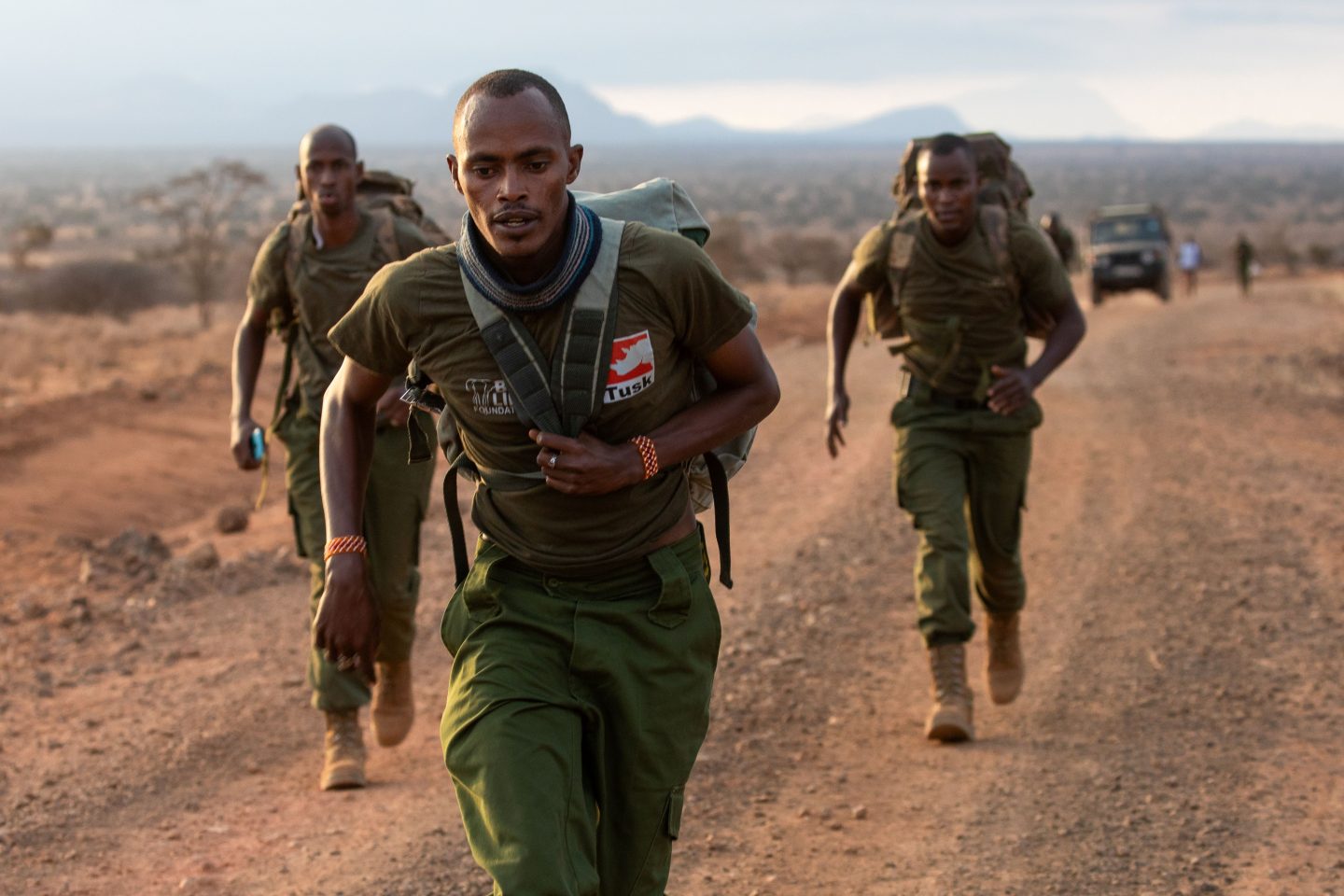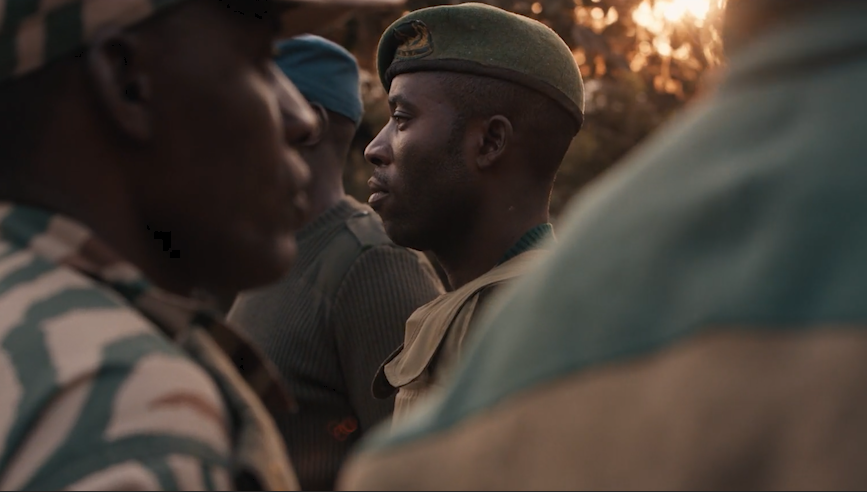
Visit The Wildlife Ranger Challenge Website
The WRC is a unique physical endurance test that connects over 170 Wildlife Ranger teams from 24 African countries and symbolises the growing movement of global solidarity with the Wildlife Ranger profession. Teams participate in a series of mental and physical challenges that culminate on 21 September 2024 in a multi-nation half-marathon across some of Africa’s most remote and beautiful landscapes.
The WRC is organised by Tusk and the Game Rangers Association of Africa (GRAA) with support from founding donor, the Scheinberg Relief Fund. Launched in 2020, the WRC has since raised over $18.5 million in funds. Participants are cheered on by supporters across the world.
The goals of the WRC are:
- Increase global recognition of the importance of the wildlife ranger profession
- Communicate the varied roles and multiple daily challenges of Rangers
- Raise vital funds for rangers’ frontline conservation work
- Foster connection and camaraderie among the participants
Charlie Mayhew OBE, Founder and President of Tusk said, ‘We all know this is a critical time in the story of life on Earth. In less than 50 years we have lost nearly 70% of the planet’s mammals, birds, fish and reptiles. This loss of nature and biodiversity profoundly affects us all: we depend on it for survival.
‘One pragmatic strategy to help halt the loss of nature is to fully recognise, respect and invest in the vital work of Wildlife Rangers: thousands of brave men and women who work as guardians of vast areas of the planet’s land and water.’
The wide-ranging duties of a Wildlife Ranger are not often understood. Responsibilities incorporate anti-poaching operations and law-enforcement, but also include habitat monitoring, environmental education, fire management, dog training, ecological research, intelligence gathering, the collaring of wildlife and removal of snares, assisting injured animals and acting as emergency first-responders for local civilians.
In addition, the cornerstone of a Ranger’s role is liaison with local communities. Rangers act as diplomats, educators, intermediaries and peacekeepers, educating local people as to the broad benefits of wildlife conservation and encouraging them to live peacefully alongside endangered wildlife.
And yet, despite the vital nature of their varied work with both wildlife and people, the Wildlife Ranger profession is not fully understood. To be a Ranger in Africa is to carry out hazardous and sometimes life-threatening work. They face threats to life from armed poachers and illegal wildlife trafficking networks, as well as attacks from predatory animals: violence, injury, disease and death are not uncommon in the line of duty. Rangers endure tropical diseases, dehydration, bushfires and the isolating effects of long periods away from home. There is also a critical lack of insurance cover for Rangers and their families: 50% of Rangers have no life insurance.
Andrew Campbell, Chief Executive Officer of GRAA, said, ‘Despite the risks they take and the incalculable value of their contribution to conservation, Africa’s Wildlife Rangers are often undervalued, under-resourced, under-paid and underequipped. They frequently experience poor working conditions. Long hours, absence of adequate training and the lack of essential equipment such as first aid kits, boots, radios, tents, and vehicles are all too common.’
‘In order to protect the planet’s remaining biodiversity, we must fully recognise that Wildlife Rangers are key workers of conservation and are integral to urgent global efforts to maintain the world’s ecological balance.’
Precious Malapane, Operations Manager, K9 Unit Ranger and Dog Trainer of Southern African Wildlife College said, ‘The WRC is about honouring Rangers, who work as nature’s eyes and ears. The more funds that are raised through WRC, the more boots on the ground there will be to protect the natural world. It is our duty to make sure we protect wildlife for future generations. I don’t want my children to know about Rhino from photographs. They need to see them alive, free and walking on the savanna.’
The WRC has become a lifeline for Africa’s Rangers. It raises vital matched funds that help to improve working conditions and provide professional training and field equipment.
Nick Bubb, CEO of Tusk said, ‘The internationally agreed biodiversity plan of 30×30, would require a huge increase in the number of employed wildlife rangers needed to achieve climate mitigation and biodiversity goals. Focussed events such as the WRC allow Ranger teams to unlock much needed grants and galvanise international support for the profession.’
The Wildlife Ranger Challenge would not be possible without the generous support of the Scheinberg Relief Fund and we are also grateful for the sponsorship from Disney Conservation Fund, EJF Philanthropies and San Diego Zoo Wildlife Alliance.



